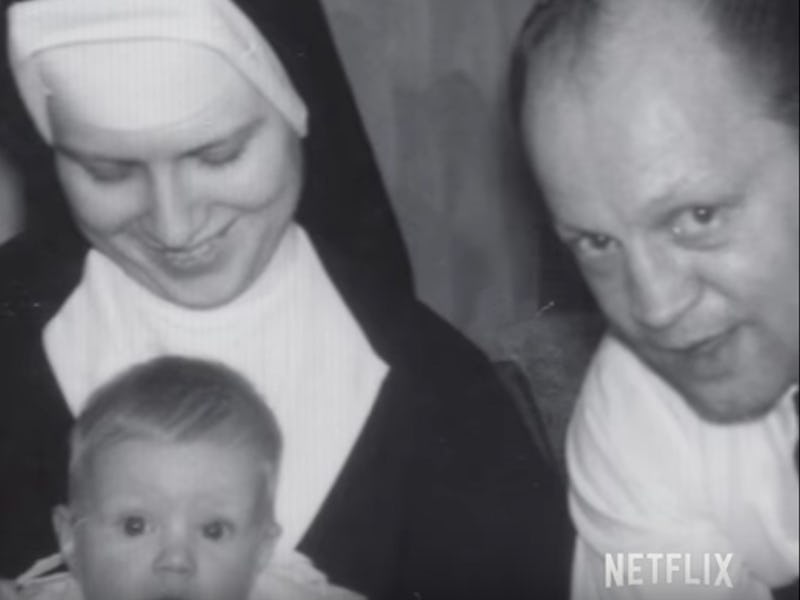Netflix’s newest true crime documentary series The Keepers investigates the mysterious 1969 murder of Sister Cathy Cesnik. The seven-episode series breaks down the little we know of the crime, following a group of people who are still trying to crack the case today — relying heavily on memories.
One of these individuals is Jean Hargadon Wehner, a former student of Cesnik’s at the Archbishop Keough High School in Baltimore, Maryland. Wehner was shown the nun’s lifeless body next to a dumpster by Father Joseph Maskell. Wehner remembers Father Joseph Maskell telling a panicked Wehner a particularly odd line: “You see what happens when you say bad things about people.”
The thing is, Wehner didn’t always have this memory. She explains in episode three entitled “The Revelation,” that this particular memory — along with a slew of other horrific memories — was buried for two decades until she eventually began “vomiting up” her recollections of abuse. While the Baltimore Archdiocese brought in a “false memory” expert to undervalue Wehner’s memories when she reported her abuse in 1992, she remains confident that what happened occurred.
How could someone seemingly forget such an awful, arguably indelible event? According to the American Psychological Association, dissociation such as what Wehner may have experienced occurs when a memory is not lost forever, but is unavailable for retrieval for some time. Scientists believe that stressful experiences, like abuse, are traumatic enough that the brain protects the individual from the pain of the memory. If these memories stay repressed later, these memories can cause issues like anxiety, PTSD, and — in Wehner’s case — dissociative disorders.
In 2004, researchers from Stanford University and the University of Oregon discovered that there was, in fact, a biological mechanism that controlled voluntary memory suppression. They explain in Science that functional magnetic resonance imaging scans reveal increased activation of the left and right frontal cortex in an attempt to control unwanted and/or harmful memories, as well as reduced activation in the hippocampus, the area of the brain used to recall experience. The more a brain’s frontal cortex is activated, the more likely a memory will be successfully repressed.
“There is a clear neurobiological basis for motivated forgetting,” lead author and psychology professor Michael Anderson said in statement. “Repression has been a vague and controversial construct for over a century, in part because it has been unclear how such a mechanism could be implemented in the brain. The study provides a clear model for how this occurs by grounding it firmly in an essential human ability — the ability to control behavior.”
A study published in 2016 in Nature Communications took this research one step further: Not only is there a biological mechanism that’s activated when the brain wants to repress traumatic memories, but these memories can actually block memory formation in that moment as well as in the future. Suppressing memories creates a “virtual lesion” in the brain, they write, which in turn creates an “amnesiac shadow” of the formation of future memories.
“If you are motivated to try to prevent yourself from reliving a flashback of that initial trauma, anything that you experience around this period of time of suppression tends to get sucked up into this black hole as well,” study co-author Dr. Justin Hulbert told The Guardian.
In other words, it’s very possible that Wehner’s high school memories were so horrible that her automatic psychological reaction was to shelter her from these painful memories by outright forgetting them.
